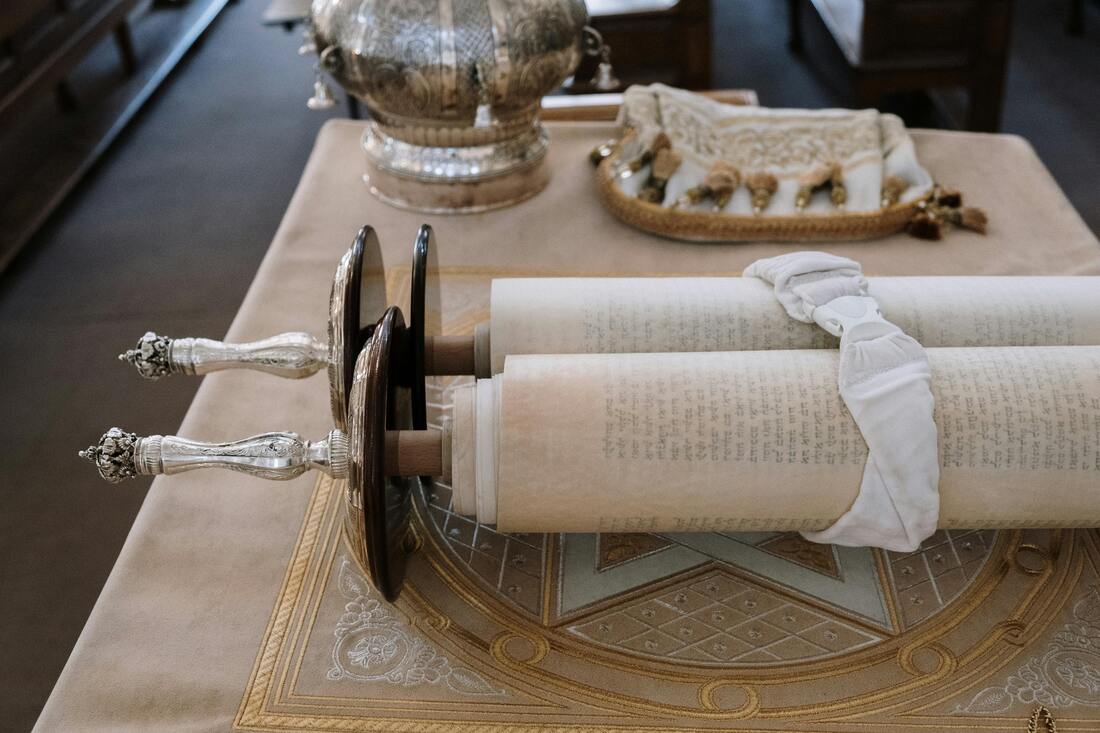|
On Friday, at noon, we contemplated what Jesus did for us on the cross. His death was gruesome! The most horrible form of execution is crucifixion. It came after a scourging that opened every pain cell in the person's body. Naked, Jesus was nailed to the crossbeam of the cross. The cross was raised up and positioned so that Jesus could look down at those who mocked and insulted Him. Death was slow and agonizing. It came about through the loss of blood circulation followed by coronary failure or through the collapse of the lungs, causing suffocation. For six hours Jesus’ body suffered this torture.
Jesus knew what was to come while he walked the earth. In the Garden of Gethsemane, He got real with Father God. "My Father, if it is possible, may this cup be taken from me. Yet, not as I will, but as you will." (Matthew 26:39) He prayed again. "My Father, if it is not possible for this cup to be taken away unless I drink it, may Your will be done." (Matthew 26:42) Scripture records that He prayed a third time. "So, He left them (the disciples) and prayed a third time, saying the same thing." (Matthew 26:44) The worst part of the agony that Jesus would have to endure was His alienation from God after He took our sins upon Himself when He cried, “My God, My God, why have You forsaken Me?” (Matthew 27:46) Before Christ's death and resurrection our sins separated us from God. This separation is a form of death that we cannot change alone. Because Jesus is the Son of God and never sinned, only He can be the bridge that reconnects us to Father God. Our penalty should have been death, but Jesus offered His life for ours. He redeemed us from the curse that is produced through sin by becoming a curse for us. (Galatians 3:13) He took on Himself all our sin--past, present, and future. Because of this, all our wrong doings are forgiven, and we are reconciled to God. How do we know that the sacrifice of Jesus on the cross was acceptable to God? It was His resurrection from the dead that lets us know we are forgiven and redeemed. In Romans 4 we are told that Abraham was credited with righteousness because he believed God. "The words 'It was credited to him,' were written not for him alone, but also for us, to whom God will credit righteousness for us who believed in Him who raised Jesus our Lord from the dead. He was delivered over to death for our sins and also raised to life for our justification." (Romans 4:23-25) This is why we rejoice and give praise for this resurrection today. I am interested in how the earth responded to the death and resurrection of Jesus. At both events, there was an earthquake that was so violent that “the earth quaked, and the rocks were split.” (Matthew 27:51 – NKJV) The Creator of the world took charge and prepared the earth for a new day. It was the third day, the day set aside for Jesus to rise from the dead. Since the Bible says we were crucified with Him and raised with Him, we should live the rest of our lives in the power of this truth. We now live in newness of life. (Romans 6:4-5, Colossians 2:11-12) Hallelujah! The Church calls today Palm Sunday in remembrance of how the Jews spread their garments and palm branches on the road before Jesus as He entered Jerusalem riding on a colt. The day that he entered the city was one on which God's followers brought their lambs to the Temple to be inspected by the priests. The law was clear: "The animals you choose must be year-old males without defect..." (Exodus 12:5) Those lambs were to be sacrificed for the celebration of Passover on the 14th day of Nisan, the first month of the Hebrew calendar.
The prophet Zechariah had told of the day when Jesus would enter Jerusalem as a hero. "Rejoice greatly, Daughter of Zion! Shout, Daughter Jerusalem! See, your King comes to you, righteous and victorious, lowly and riding on a donkey." (Zechariah 9:9) As the people waved their palm branches, they demonstrated their belief that Jesus was the Messiah. But they were expecting a different kind of king, one who would overthrow the Romans and lead them in a military victory. The Kingdom of Christ looked unlike what the children of Israel expected. The crowd of people had seen how Jesus brought Lazarus to life from the tomb. Certain a Rabbi who could raise someone from the dead could overcome a Roman army! Jesus wept over Jerusalem for the way they misunderstood His mission. "Jerusalem, Jerusalem, you who kill the prophets and stone those sent to you. How often I have longed to gather your children together, as a hen gathers her chicks under her wings, and you were not willing. Look, your house is left to you desolate. I tell you; you will not see me again until you say, 'Blessed is he who comes in the name of the Lord.'" (Luke 13:34-35) At a final Seder meal, when Jesus was betrayed, He washed His disciples’ feet and then spoke His last words to them. His teaching focused on preparing them for the time when He would physically depart from the world. He wanted them to understand how to follow the Holy Spirit. They would not be able to see, hear, or touch their new Leader as they did Jesus. He tells the disciples, "And I will ask the Father, and He will give you another advocate to help you and be with you forever--The Spirit of Truth. The world cannot accept Him, because it neither sees Him nor knows Him. But you know Him, for He lives with you and will be in you." (John 14:16-17) I have learned from Rick Renner's book, Paid in Full, that in Greek, the word "another" that appears in John 14:16 is "allos," which means "one of the very same kind and character." When He walked on earth, Jesus was the image of our Father. And now, Holy Spirit was to be the representation of Jesus. The message that was spoken to the disciples can still be applied to our lives today. Just as they had to learn to communicate with the Holy Spirit, so do we. Let's be comforted by the truth that Holy Spirit is "one of the very same kind" as Jesus. He is waiting to empower us in every endeavor of our lives. Holy Spirit is so important that Jesus told His disciples, "...It is for your good that I am going away. Unless I go away, the Advocate will not come to you; but if I go, I will send Him to you." (John 14:7) May we experience His empowerment as we enter Holy Week and for the rest of our days Have you noticed how history seems to repeat itself? What is happening in Israel at the present time is like what happened in the Persian empire around 483 B.C., 103 years after Nebuchadnezzar took the Jews into captivity. Head of the Persian Empire, King Xerxes, held an opulent banquet lasting 180 days. It is thought that this banquet was to demonstrate his great wealth to the nobles of the empire so that they would know that he had the funds to go to war against Greece. In the book of Esther, we are introduced to those who surrounded the king and to a plot by his evil assistant, Haman, to annihilate the entire population of Jews. Today, that spirit of Haman is still alive in the group called Hamas who is actively warring against both Jews and Christians.
Though the book of Esther never mentions God by name, we see Him at work behind the scenes and through the people He uses by putting them in the right place at the right time. The story revolves around a Jewish orphan girl, Esther who only had one relative, her cousin Mordecai. These two landed in Susa, the capital of the Persian empire after their families were exiled from their homeland. Both were pulled into palace life. Mordecai was appointed to an official position among the Jewish captives. Esther was chosen to be in the king's harem because of her great beauty. A year later, after extensive beauty treatment, she was taken to the royal palace. The king was so delighted with Esther that he placed the queen's crown on her head. It is no coincident that Mordecai was on duty in the king's gate when and where two guards conspired to assassinate the king. Mordecai gave the information to Queen Esther who told the king about it. Mordecai's faithfulness was recorded in the Book of the History of King Xerxes' Reign. He was in the right place at the right time. Esther was also placed in her position as queen at the right time. It is during King Xerxes' twelfth year that he and Haman cast the pur (lot) to determine that the Jews throughout the kingdom would be destroyed on the last month of the year, Adar. A decree was made and sealed with the king's signet ring. Imagine how Mordecai felt when he learned about the plan that Haman and his co-conspirators to annihilate every Jew. He put on sack cloth and ashes and wept bitterly. He also drafted the aid of Esther to go before the king on behalf of their people. Esther pointed out that anyone who approached the king without a summons would be put to death unless the king extended his gold scepter to them. However, Mordecai reminds Esther, "For if you remain silent at this time, relief and deliverance for the Jews will arise from another place, but you and your father's family will perish. And who knows but that you have come to your royal position for such a time as this?" (Esther 4:14) Indeed, Esther won the king's favor and revealed the details of Haman's plans to kill her and her people. The king had him hung on the gallows he constructed for Mordecai. In addition, Esther was given Haman's estate and Mordecai the signet ring of King Xerxes. A new decree was written granting the Jews the right to protect themselves and destroy or kill anyone who attacked them. They were to do this on the 13th day of the month of Adar. The tables were turned on this day so that the Jews got the upper hand over those who hated them. Scripture says of the Jews: "No one would stand against them." (Esther 9:2) Today the Jews still celebrate their victory on the 14th and 15th days of Adar, called The Feast of Purim or Lots. This year those days fall on March 24 and 25. God's faithfulness was on full display through the events of these days. His love for the Jewish people is based on His covenant with Abraham written in Genesis 12:3. "I will bless those who bless you and whoever curses you I will curse; and all peoples on earth will be blessed through you." God is always true to His word and His faithfulness is steadfast. He orchestrates the events of life so that the right people are in the right place at the right time. As He works behind the scenes, we must remember that He "works for the good of those who love Him, who have been called according to his purpose." (Romans 8:28) Who knows when God will arrange for one of us to be in a situation at a particular time and place where we will have the opportunity to change the course of history? In the meantime, our prayers will make a difference We must pray for the peace and protection the Jews around the world, especially Israel. We must ask the Lord for His favor to shine through as Jews and Christians fight for their lives against the Spirit of Haman. Worshipers are to enforce the victory of Jesus Christ. Worship is warfare in that it chases away the darkness to create a path for Holy Spirit to join us. True worshipers usher in the Presence of the Lord. They celebrate who God is and what He is going to do before He does it. The sister of Lazarus, Mary, demonstrated the characteristics of extravagant worship when she anointed Jesus at her home in Bethany.
Six days before the Passover, Mary and Martha prepared a dinner for Jesus, his disciples, and other guests who knew that Jesus raised Lazarus from the dead. Mary was prepared to demonstrate her love, devotion, and thanks to Jesus through an act of complete submission and extravagance. She brought to the table an alabaster jar filled with about a pound of the purest nard. This extremely expensive perfume probably came from the root and spike of the nard plant found in northern India. In the presence of all these people, Mary broke her alabaster jar (probably carved from translucent gypsum) and poured the perfume on the feet of Jesus as she wiped them with her hair. (John 12:3) "Judas Iscariot, the disciple who would soon betray Him said, 'That perfume was worth a year's wages. It should have been sold and the money given to the poor.'" (John 12:5 - NLT) "Jesus replied, 'Leave her alone. She did this in preparation for my burial. You will always have the poor among you, but you will not always have me.'" (John 12:7-8 - NLT) The stories in the book of Matthew and Mark tell of a different occurrence of Jesus being worshiped in the home of Simon, the leper. They do not name the woman who poured the oil on the head of Jesus. The disciples grumbled when they observed the act of worship, not seeing it this way. Jesus said to them, "...She has done all that she could to honor me. I promise you that as this wonderful gospel spreads all over the world, the story of her lavish devotion to me will be mentioned in memory of her." (Mark 14:8-9 - TPT) Let's look at the components of Mary's extravagant act of worship. I think we can learn from them. Even before pouring out the expensive nard, Mary thought about what was going to happen to Jesus. Unlike the disciples who were in denial, she believed what Jesus told them—He was going to die. So, Mary planned a way to honor Jesus with her worship. Her worship was extremely costly and sacrificial. She was not ashamed to humble herself in front of Jesus and others as she went all out to demonstrate her love and devotion. Mary did not hold back but poured every drop of perfume from the jar onto Jesus. To those at the table with Jesus, Mary's act of worship was shocking! They were not thinking about the future and the truth that this might be their last opportunity to show their devotion to their Lord. As we get closer to the time when Jesus was crucified, we need to contemplate how we might worship our Savior. Our worship should be sacrificial, extravagant, and celebratory. He is worthy of everything we can give to Him! In a spiritual warfare battle, the tongue is the most critical weapon. Scripture tells us, "Death and life are in the power of the tongue." (Proverbs 18:21 - NKJV) When we face situations that defy the will of God, we must speak God's truth to overcome the forces of the enemy. I can think of no better example than when Jesus identified Himself to the Roman soldiers who came to arrest Him. Rich Renner writes about this in his book titled, Paid in Full.
The first time God identified Himself He was speaking to Moses on Mount Horeb or Sinai. "God replied to Moses, 'I Am Who I Am.'" (Exodus 3:14 - NLT) By using the name "I Am," God was describing His eternal power and unchanging character. He identified Himself as the ever-existing God. Jesus was to use these words several times, and they are record in the book of John. In John 8 we read of an encounter that Jesus had with the religious leaders. They ask Him a pointed question in verse 53. "'Who do you think you are?' Jesus replies, 'Your Father Abraham rejoiced at the thought of seeing my day; He saw it and was glad.'" (Verse 56) They responded, "You are not yet 50 years old, and you have seen Abraham!" (Verse 57) Jesus blows them away with His response: "Very truly I tell you, before Abraham was born, I am!" (Verse 58) The leaders picked up stones to stone Jesus, but He slipped away because His time to die had not yet come. "I Am" is the Greek words "Ego Eimi." John recorded several statements of who God made Him to be: "I am the bread of life." (6:35) "I am the light of the world." (8:12) "I am the gate for the sheep." (10:7) "I am the good Shepherd." (10:11) "I am the resurrection and the life." (11:25) "I am the way, the truth, and the life." (14:6) "I am the vine and my Father is the gardener." (15:1) Each of these images gives us a partial picture of who Jesus is. At The Last Supper, Jesus was speaking to His disciples and said, "I am telling you now before it happens, so that when it does happen you will believe that I am who I am." (John 13:19) After this statement, He tells the disciples that one of them will betray Him. Jesus was to identify Himself this way again when Judas came to betray Him with a band of Roman soldiers. The disciples were with Jesus in the olive grove called Gethsemane when He was confronted by the armed soldiers. Judas greeted Him with a kiss, which was to be the sign that He was the one to be taken away. The story continued: "Jesus, knowing all that was going to happen to Him, went out and asked them, 'Who is it you want?' 'Jesus of Nazareth,' they replied. 'I Am,' Jesus said...When Jesus said, 'I Am,' they drew back and fell to the ground." (John 18:4-5) The words Jesus spoke were "Ego Eimi," "I Am," the very words that God spoke to Moses on Mount Sinai. The soldiers were to learn that by a mere word, Jesus could overpower them. Jesus made it clear to them that He could not be taken by force. After this, He willingly surrendered to the troops as they were picking themselves up from the ground. Jesus is for us The Great "I Am." His promises come with power. The problems we face can be knocked to the ground, like the soldiers, through the mighty promises of God. We must boldly affirm who we are in Christ. Speaking the truth of God's Word brings the Lord's power and authority into every situation. |
Joan E. MathiasCategories
All
Archives
July 2024
|





 RSS Feed
RSS Feed